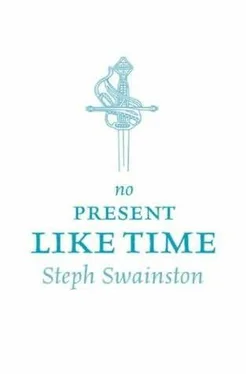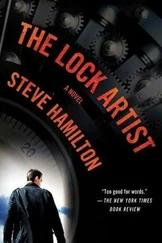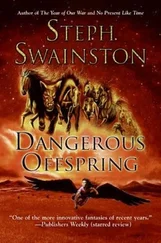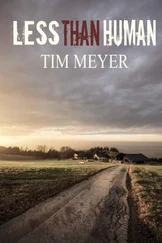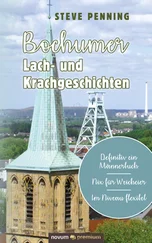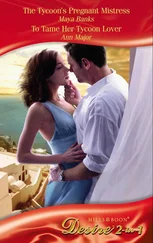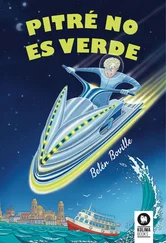Mist gave him a venomous look. I suppose she was right; it would be a stroke of luck if a leader of Tris excelled at some occupation and could join the Circle. She said quietly, “This man is elderly enough to be very grateful for immortality.”
“Wisdom comes with age,” said Wrenn, vaguely.
“Maybe it does, here,” said Lightning.
“Aye, well no matter what venerable age he has reached, he’s still a baby compared to us.”
Vendace had listened to their exchange without understanding a word. He smiled and pointed a direction through the crowd; we followed him.
The heat was like a barrier, and every rare midday gust of wind just blew hot air at us, into our skin, and offered no relief. It seemed to come in waves, each more stifling and cloying than the last. I unlaced my shirtsleeves, slipped them off and tucked them in my belt. The heat made the five of us walk slowly, with smooth, languid movements.
Fulmer said, “I could quite happily live here. See the promenade, it’s splendid, yes?”
“Yeah,” said Wrenn. “I’ve never seen such sexy girls. Check out that honey with the short skirt.”
Fulmer selected a cigarette from a whale’s-tooth ivory case and screwed it into a holder. He rubbed his short beard. “I plan to come back and never leave at all, at all. I have no ties and our huntress Queen will gladly grant me permission. This is much better than Awia, which copies the Castle. We turn everything into a bloody competition, from maths to pottery, and we wear ourselves out. Here no one’s the best and no one cares. See how happy they are?”
We were led from the harbor into a long, straight main boulevard bordered by white marble columns. Steles stood at regular intervals, topped with statues of men and women draped in cloth. I counted them, and noticed that after every ten statues an archway spanned the street. Smaller alleys led into the road-grid on either side of us, between the two-story buildings. Small shops opened onto the pavement, with striped canvas porticoes: a confectioner selling pasties and pastries; sausages hung above smoked viands and a mess of octopus in a butcher’s; a barber swept his shop.
Everybody was pointing things out and bursting with questions, far too many for me to translate. “Look at the vines,” Mist said, enthralled. They twined up a trellis on the last quayside house, heavy with black grapes, tendrils reaching to the terracotta chimney.
I surreptitiously peered over the green window boxes as we passed, seeing that the furniture in the lower room was slight and elegant. A small dog lay curled on a chair cushion. The cool walls were painted with a stylized frieze of pearl divers in an underwater garden. Trisian art seemed to cover everyday items rather than being framed.
“The knives,” Wrenn said. “Ask him about the bronze daggers.”
“I certainly will not!”
Fulmer indicated a workshop where a canoe was being carved. Vendace said, “We travel for hundreds of kilometers around Tris and the unoccupied islands.”
“Hundreds?” I asked.
Vendace nodded with enthusiasm for his profession. “Easily, past the Motley Isles into the open ocean! Why do you question it? I’ll speak slower if you want.”
Next we saw a large paved piazza surrounded by colonnades. Mist said, “This must be a marketplace. Isn’t it cute?”
A restaurant occupied the open, airy ground floor of the nearest block. About twenty Capharnai tumbled out and joined those lining the street to stare at us. A stout café proprietor wore a loose tunic, a single piece of material gathered at the waist by a sash. He beckoned. “Come in, come and dine.”
Vendace raised his brown hands apologetically. “Excuse me, Derbio, I must take our visitors to the Amarot.”
The round man giggled. “Of course, but they’re invited to drink tea with us afterward.”
I was thrilled that I could understand a dialogue between two native speakers; my ear for the language was improving. I said, “It would be a pleasure. What’s tea?”
He seemed staggered. “By Alyss, you are in for a treat!”
I listened to my friends’ conversation. Mist was enthusing, “The shops are so clean. No smoke, no grime…”
“No litter,” said Fulmer approvingly. “You don’t get that in Hacilith.”
I agreed: “I thought something was wrong. No one’s standing at street corners or porches. When I lived in Hacilith I never wanted to walk past threatening groups of lads.”
I translated for Vendace, who said, “Youths don’t wish to loiter. They are occupied learning the trade of their choice.”
“Not all the time, surely.”
Vendace said, “In the evenings they discourse in the tea shops.”
“Wow. Tea must be powerful stuff. Doesn’t Capharnaum have any crime at all?”
There was a hint of smugness in Vendace’s voice. “Of course there is, occasionally, but why should people break the law when they all decide on the laws?”
Wrenn whispered, “That waiter was wearing a tablecloth.”
Lightning said laconically, “What’s odd about that? It’s much more practical than the clothes we have now; you can put your wings through the back.”
“How do you know?”
“My mortal years were not so long ago that I don’t remember them, Serein.”
As we walked through town, I noticed that the houses really were similar; apart from superficial variations in paint and plaster their furnishings were all equal. I wondered aloud, “No one is poor.”
I elaborated for Vendace, who didn’t understand me. He said, “Our currency is based on labor. Every trade is paid the same, in days and hours. You can get more if you work longer, but people tend to work the same length of time. Time is the most valuable thing that exists, surely?” He unfolded some banknotes from his purse and showed us. “That one is five hours. This one’s the smallest-thirty minutes. What do you have?”
“Coins. Notes are small change for us. See here? Where we come from is similar because everyone in the Castle’s given the same yearly handout-just a pittance. We can only ask for more money for appropriate projects.” I thought if we give the Capharnai steel, it would be worth hundreds and hundreds of hours in their currency, as precious as months of lifetime.
Mist pressed me with more questions to translate. I waved my hands and glanced at the sky, trying to find words quickly, but Vendace stopped me: “Please save your queries for the Senate. Then we can all hear and you won’t have to repeat yourself.”
In the center of town the road passed through a rotunda. The surfaces of its columns were covered with gaudy mosaics, squares of gold, blue sapphire and deep garnet; illustrated panels decorated the edges of its conical roof.
We approached the crag, and the street began to ascend a slope. The gradient became steeper with a series of long steps. We were heading for the columned halls high above. I pointed up to them. “Lightning, aren’t the buildings beautiful? Your pad looks a bit like that.”
He scanned them eagerly. “The Tealean north front of my house emulates the style. It was a fashionable revival in the latter half of the sixth century.”
“A revival! Then how old could this be?”
“Sometime in the early four hundreds the Insects put an end to the people who originally built like this. That was before my time, but I’m sure I recollect my history lessons.”
Mist glanced at us. “Yes, but we don’t need one now! We are making history, gentlemen. Will you pay attention, please?”
Vendace led us along the magnificent boulevard, between the shuttered dwellings. Suddenly we emerged from the town, the red riot of roofs below us. The panorama extended to the ocean beyond the massive harbor walls which enclosed the lagoon and narrowed together either side of the beacon islet. The Trisians’ canoes sheltered within it, secure from the breaking surf. Here and there between the sharp corners of the buildings I caught glimpses of a clean narrow river glittering until it merged with the ocean just south of the harbor.
Читать дальше
